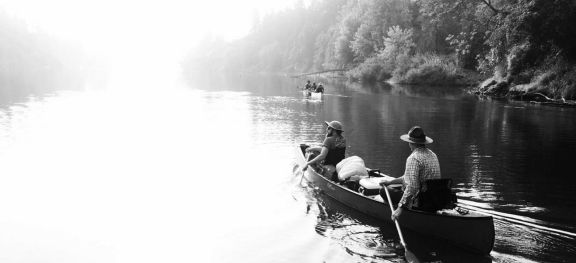WWC20 – the shortlist

24 September 2020 See who won!
22 September 2020 We are thrilled to publish details of our 18 shortlisted entries in this year's wine writing competition, whose theme was sustainability. Illustrated above is Illahe of Oregon's method of transporting wine to Portland.
We have never had such an impressive response to one of our writing competitions as to this year’s competition with its demanding theme of profiling a wine producer who takes sustainability seriously. Entrants were allowed to submit as many articles as they liked, and they were allowed to have an affiliation to the subject, so long as they made this clear.
There may not have been as many entries as in some previous writing competitions but this year’s task was much more difficult than, for example, describing how you fell in love with wine. Nevertheless, we had more than 85 entries and, perhaps even more surprisingly, felt that 75 of them were good enough to publish. See our guide to published entries. We ended up publishing two a day until last Sunday.
Meanwhile, thanks to Tam’s knowledge of the field, we recruited two specialists in sustainability as external judges, Irina Santiago-Brown in Australia and Tobias Webb in the UK, to help our JancisRobinson.com team pick out the very best. Our task was to select those entries that combined good writing with good judgement. The best entries were well written by someone who identified a worthwhile subject and described it comprehensively and sensitively. (Bear in mind that, to make it fair for everyone, we sat on our copy-editing hands and published the entries exactly as we received them.)
So now we announce the shortlist, the 18 entries we felt were truly superior, listed in alphabetical order by subject, with author and date of publication:
Brooks Wines, Oregon by Pascal Brooks 6 September 2020
Crittenden, Mornington Peninsula by Ed Verrill 10 August 2020
Cullen, Margaret River by Mike Bartlett 28 July 2020
Felton Road, Central Otago by Chris Howard 14 August 2020
Frog's Leap, Napa Valley by Clayton Fox 1 September 2020
Hirsch, Sonoma Coast by Nicholas Daddona 15 September 2020
Illahe, Oregon by Aaron Bartels 27 August 2020
Jakab, Tokaj by Annamaria Juhasz 10 September 2020
Ch Maris, Minervois by Alex Hill 4 September 2020
Matthiasson, Napa Valley by Chris Struck 16 September 2020
San Donato, Tuscany by Nicoletta Dicova 15 September 2020
Sokol Blosser, Oregon by Karen Magner 9 September 2020
Solminer, California by Joanna Snawder-Manzo 28 August 2020
Southbrook, Ontario by Jacky Blisson 4 August 2020
Spottswoode, Napa Valley by Ashley Hausman MW and Martin Reyes MW 10 September 2020
Waterkloof, Stellenbosch by Sarah Suzanne 28 August 2020
Dr Wehrheim, Pfalz by Anna Chilton 13 September 2020
Franz Weninger, Burgenland I by Hajnalka Kis 4 September 2020
Tomorrow we’ll publish an appreciative overview of the entries and what they teach us by one of our external judges, Dr Irina Santiago-Brown, and then on Thursday we will reveal the final result of our competition.
The biggest cohort of entrants, 20 of them, came perhaps not surprisingly from the UK, although only three of the profiled wine producers were English – perhaps illustrating what keen wine tourists we Brits are – or do I mean were? There were almost as many entrants from the US, 18, and 17 of the wine producers profiled are US based, mainly in California and Oregon. The next-biggest national group of competition entrants were from Canada, seven of them, profiling five Canadian wine producers.
It’s hardly surprising that we had quite a few entries from anglophone countries – four each from Australia and New Zealand (none from South Africa) – but we also had four each from France and Hungary, even if three of those four Hungarian entries were written by the same person (which was not against the rules). Three entrants are based in Italy, two each in Greece and China and then one in each of Chile, Cyprus, Denmark, India, Ireland, the Netherlands, Norway, Poland, Portugal, Slovenia, Spain, Sweden, Thailand and, amazingly, Venezuela. Wine truly is a global business and interest. The Venezuelan entry, incidentally, was one of no fewer than three that were submitted on Chilean organic pioneer Antiyal. We also received two entries on I Vigneri in Etna and two on Franz Weninger of Austria (and Hungary).
Interestingly, the countries that supplied the joint second-biggest groups of subjects after the US – France and Italy, with 10 wine producers each – feature only once apiece in our shortlist of 18. California and Oregon feature most often. Perhaps this is partly the anglophone effect.
We hope you are as heartened as we are by the number of wine producers who are clearly taking sustainability seriously.
On Thursday we will announce who has won a copy of each of the major wine reference books, Wine Grapes, The Oxford Companion to Wine and The World Atlas of Wine, as well as two years' membership of JancisRobinson.com.
Become a member to view this article and thousands more!
- 15,422 featured articles
- 274,421 wine reviews
- Maps from The World Atlas of Wine, 8th edition (RRP £50)
- The Oxford Companion to Wine, 5th edition (RRP £50)
- Members’ forum
- 15,422 featured articles
- 274,421 wine reviews
- Maps from The World Atlas of Wine, 8th edition (RRP £50)
- The Oxford Companion to Wine, 5th edition (RRP £50)
- Members’ forum
- Commercial use of our Tasting Notes
